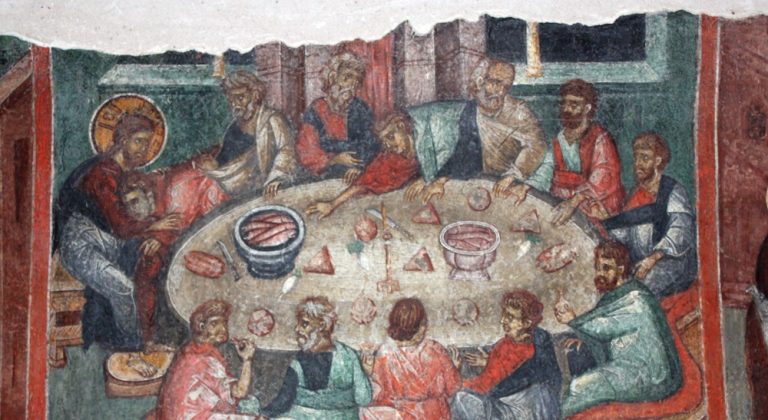By Lawrence Feingold

God reveals Himself to mankind not just through words, but also through deeds or events. The central deed of Revelation is the Incarnation of the Word and His Passion and Resurrection (the Paschal mystery). However, many other events of salvation history in various ways prepare for or point to supernatural mysteries and are also revelatory. Biblical typology is concerned with the revelatory aspect of deeds in sacred history, and constitutes what is known as the spiritual sense of Scripture. The literal sense of Scripture is the proper meaning conveyed through its words.
Because God is the principal author of the Bible, it has a richness of meaning that other books cannot rival. Most non-fictional human writings have only one meaning in each text, which is called the literal sense. This is the meaning that the words are intended to convey. Works of literary fiction, on the other hand, often have passages with more than one sense, when an author uses literary techniques to make one event symbolize or foreshadow another. If writers of literature and poetry can give more than one meaning to a text, then certainly God can put a still greater richness of meaning into the Word He inspires.
What the poet does with the events that he invents, God can do with the events of sacred history that He guides through His providence. This distinguishes the historical texts of the Bible from purely human historical works. The historical events, institutions, and persons recounted in the Bible can signify future or supernatural events and realities because biblical history has for its principal author the Author of history. This meaning by which a biblical event signifies a reality or future event in salvation history is called the typological or spiritual meaning.
St. Thomas Aquinas distinguishes the literal and the typological/spiritual senses of Scripture with this simple distinction between words and deeds. The literal sense is the meaning conveyed directly by the words of Scripture. The spiritual (typological) senses are meanings conveyed directly by the events or deeds that the words express. Thus the spiritual senses are conveyed indirectly by the words of Scripture, but directly by the events or realities. The events of sacred history are intended by God to have a meaning that goes beyond their own intrinsic significance to function as signs or pointers of future mysteries. However, St. Thomas also holds that “nothing necessary to faith is contained under the spiritual sense which is not elsewhere put forward by Scripture in its literal sense.”
The Thomistic understanding of the difference between the literal and the spiritual senses of Scripture has been taken up in the Catechism of the Catholic Church §117: “Thanks to the unity of God’s plan, not only the text of Scripture but also the realities and events about which it speaks can be signs.” The text of Scripture gives rise to the literal sense, whereas the deeds narrated by the text can themselves be signs of other realities, which is the spiritual or typological sense.
Typology comes from the Greek word “typos,” from whence comes the English word “type,” which broadly means “figure” or “model” and is the root of many English words containing the word “type” (such as “prototype,” “typecast,” “archetype,” and the adjective, “typical”). The English word “type” is taken here in the sense in which it means “that by which something is symbolized or figured; anything having a symbolical signification; a symbol, emblem.” A type is that which serves as a model for other things.
“Typology” literally means “the study or science of types.” In biblical interpretation, typology is the systematic study of the various types in Scripture. As St. Justin Martyr stated, “The Holy Spirit sometimes caused something that was to be a type of the future to be done openly.” Typology studies the architecture of God’s progressive Revelation through the interconnected deeds of salvation history.
Dr. Lawrence Feingold is Associate Professor of Theology and Philosophy at Kenrick-Glennon Seminary in St. Louis. He is the author of numerous scholarly books, including Faith Comes from What Is Heard: An Introduction to Fundamental Theology, which brings together dogmatic and biblical theology, the Thomistic tradition, the teachings of the Fathers of the Church, and the contemporary Magisterium for a comprehensive overview of fundamental theology.